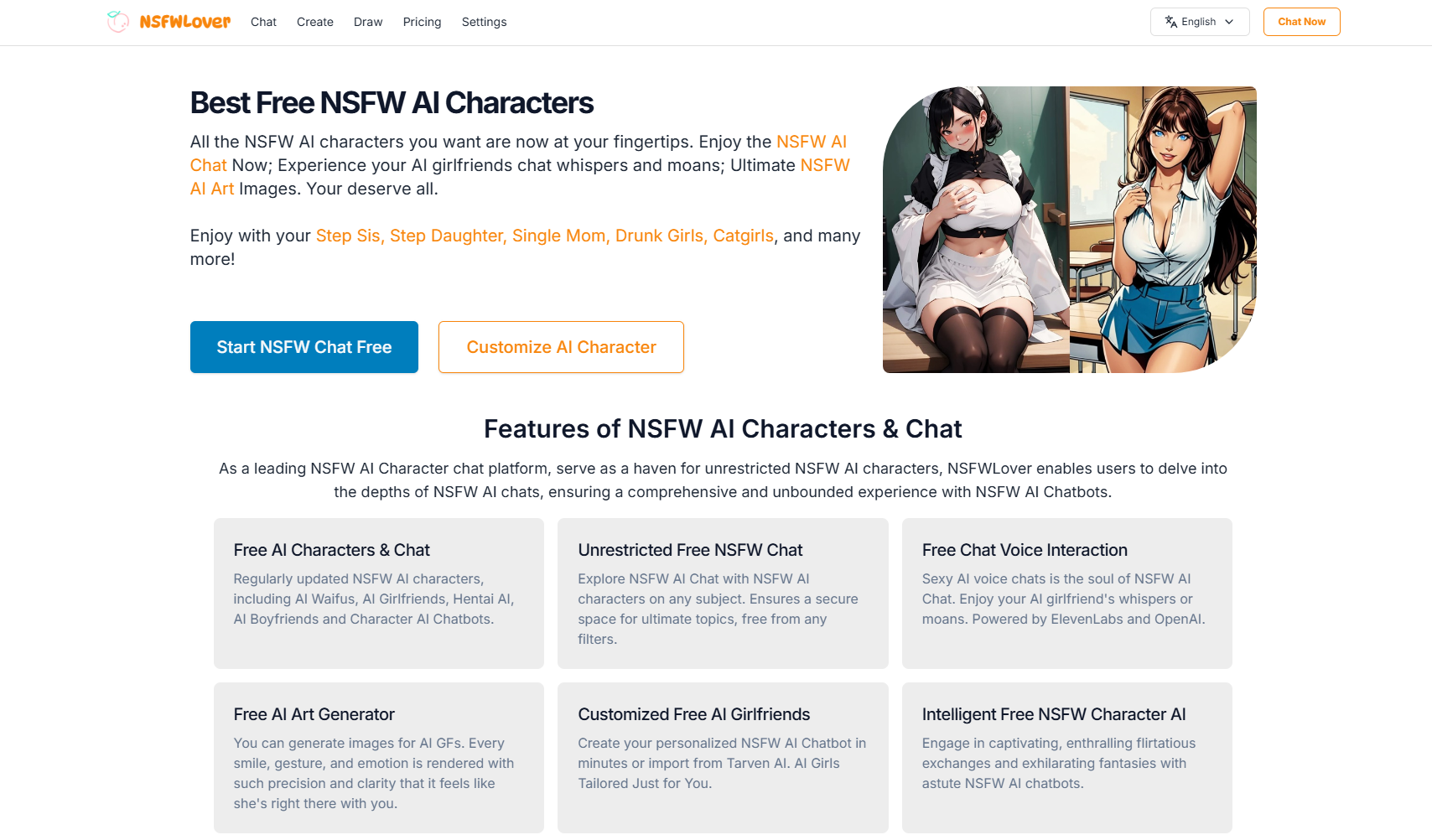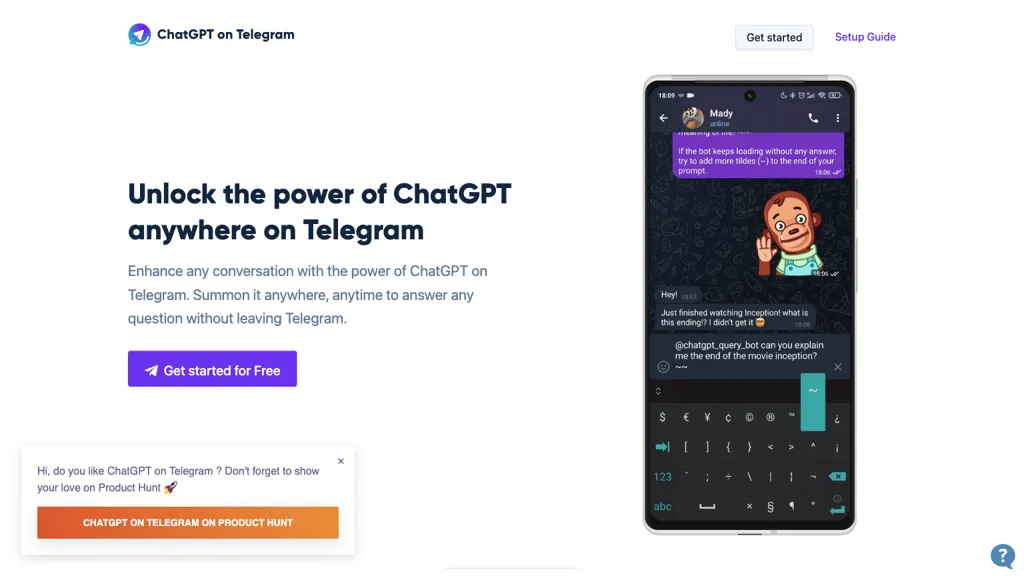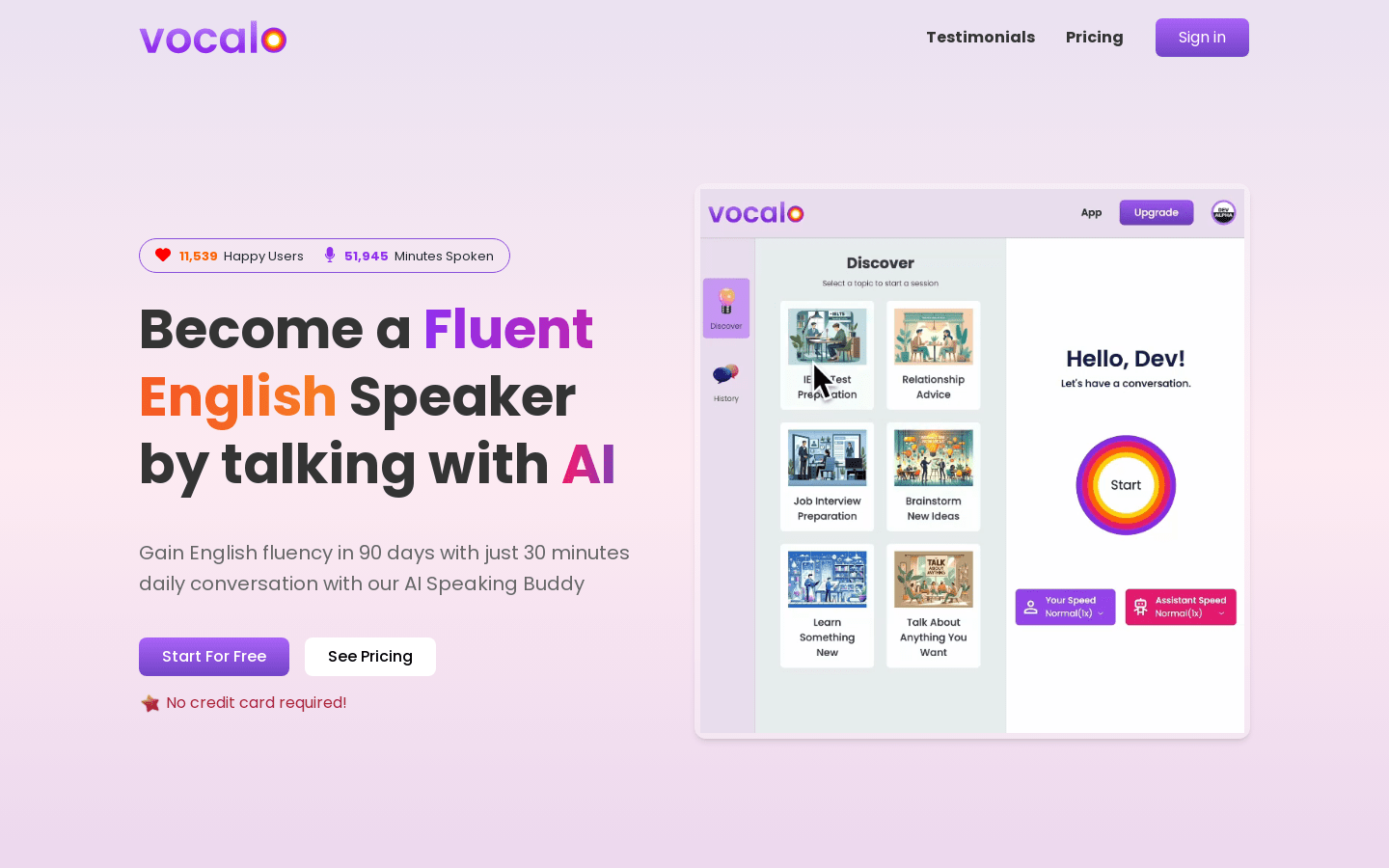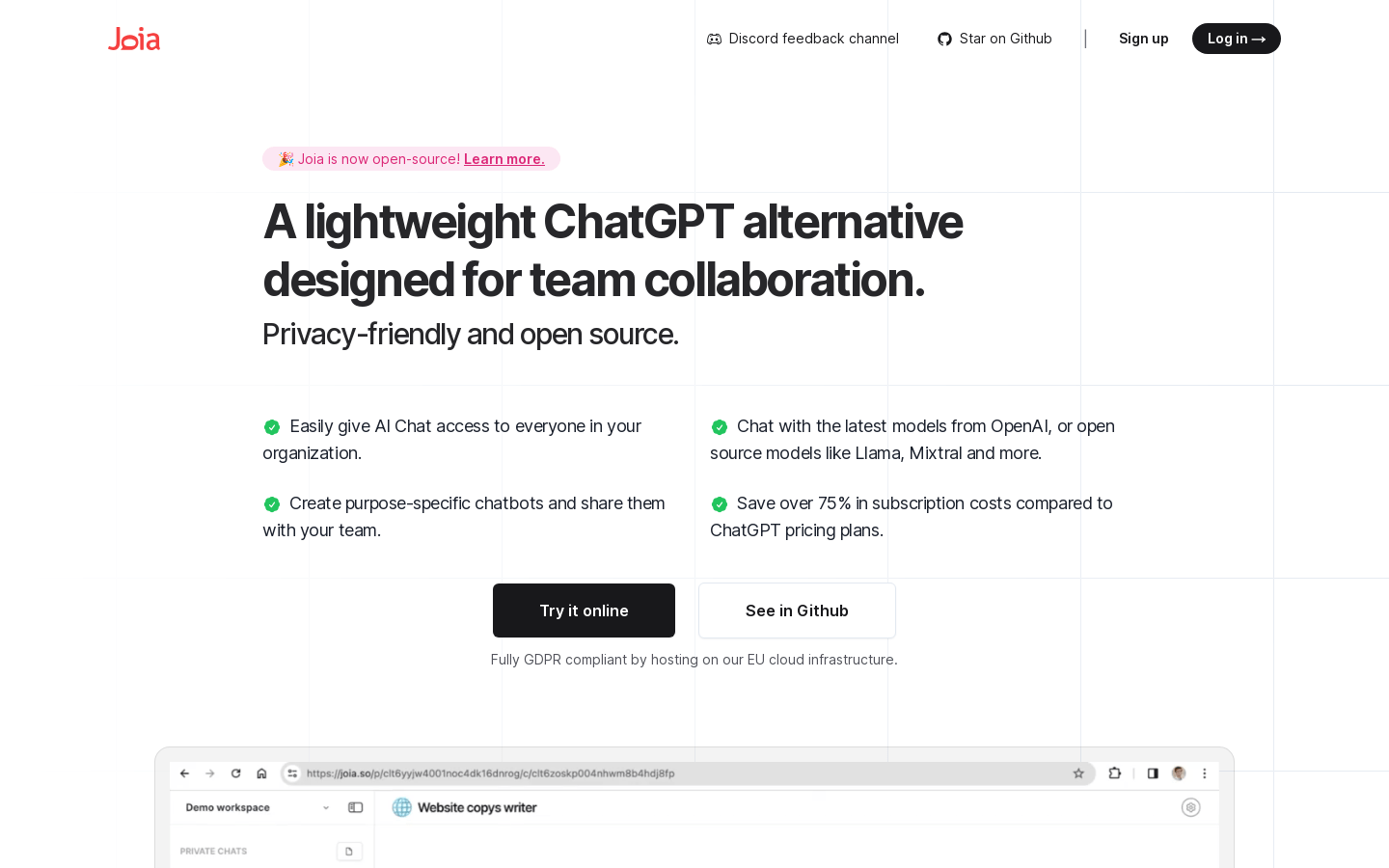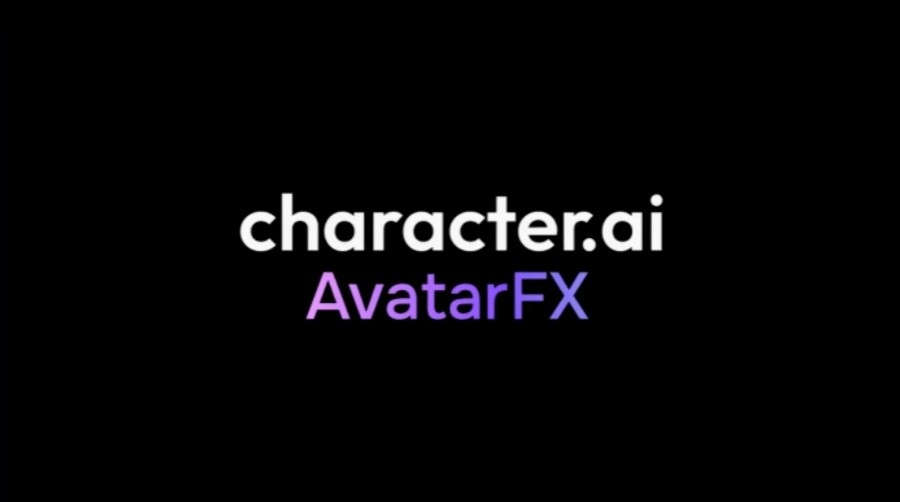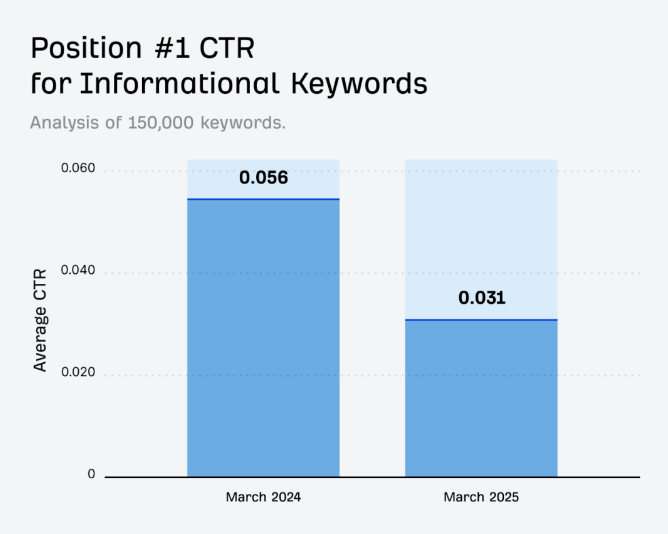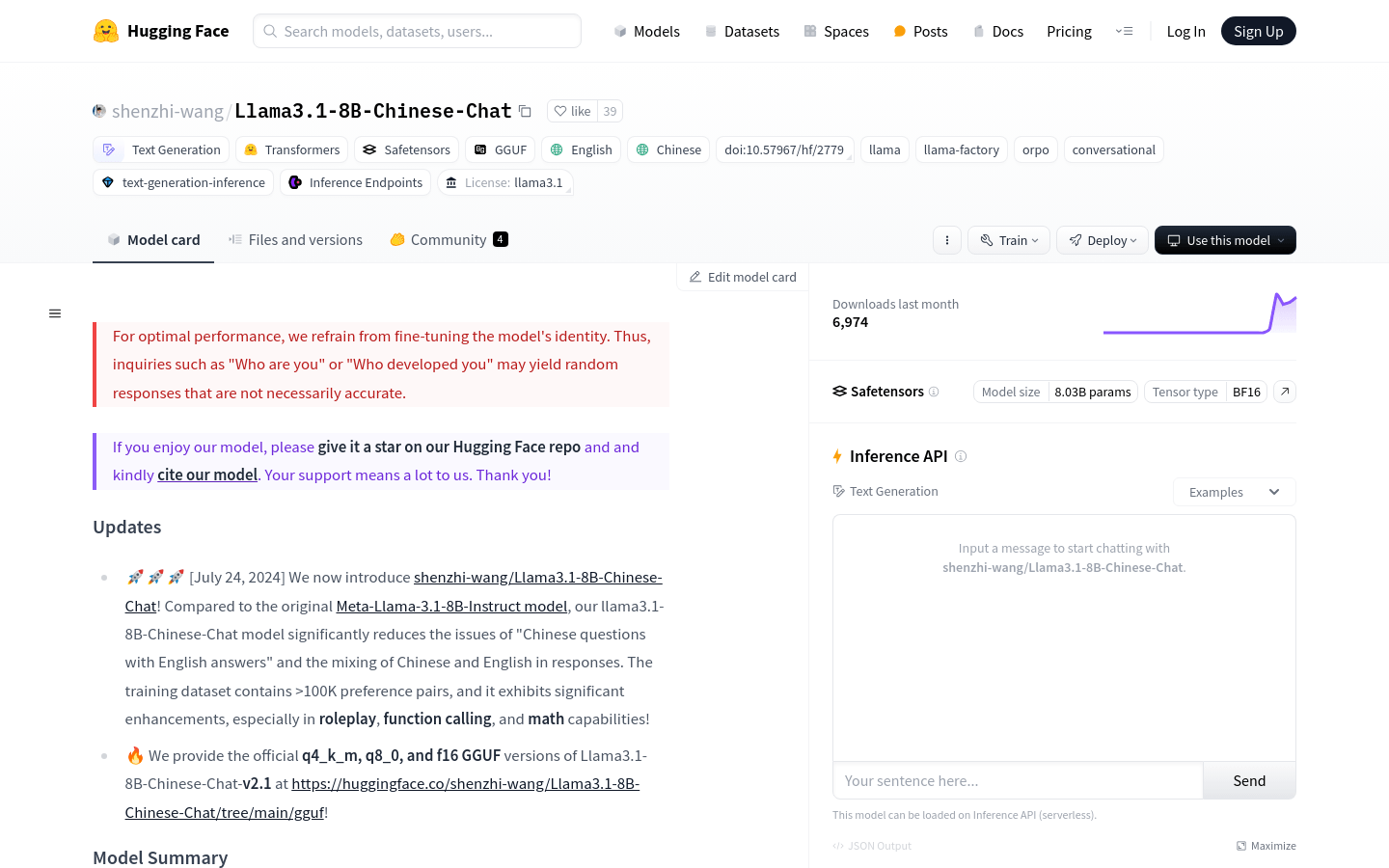
Llama3.1-8B-Chinese-Chat is an imperative tuning language model based on the Meta-Llama-3.1-8B-Instruct model. It is specially designed for Chinese and English users and has multiple capabilities such as role-playing and tool usage. The model is fine-tuned through the ORPO algorithm, which significantly reduces the number of Chinese questions answered in English and answers mixed Chinese and English questions, especially in role-playing, function calling and mathematical abilities.
Demand group:
"This product is suitable for developers and researchers who need to conduct Chinese and English conversations, especially users who want to implement role-playing and tool calling functions in the conversation system."
Example of usage scenario:
Developers can use this model to create multilingual chatbots.
Researchers can use the model to conduct academic research on language understanding and generation.
Enterprises can integrate this model into customer service systems to improve the intelligence level of customer service.
Product features:
Role Playing: Ability to hold conversations based on set characters.
Tool Usage: The model is able to invoke specific tools or functions for dialogue.
Mathematical skills: Perform mathematical calculations and reasoning in conversations.
Chinese and English dialogue: Supports mixed dialogue in Chinese and English to reduce the problem of language mixing.
Preference pair optimization: train with >100K preference pairs to improve dialogue quality.
Full parameter fine-tuning: The model undergoes comprehensive parameter fine-tuning to adapt to specific tasks.
Usage tutorial:
1. Upgrade the transformers package to support the Llama3.1 model.
2. Use Python script to download the BF16 model.
3. Use AutoTokenizer and AutoModelForCausalLM to load the model.
4. Set model parameters, including device mapping and data type.
5. Prepare the conversation template and process it using tokenizer.
6. Use the model's generate method to generate dialogue output.
7. Decode the generated output and print the results.
